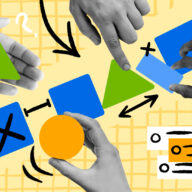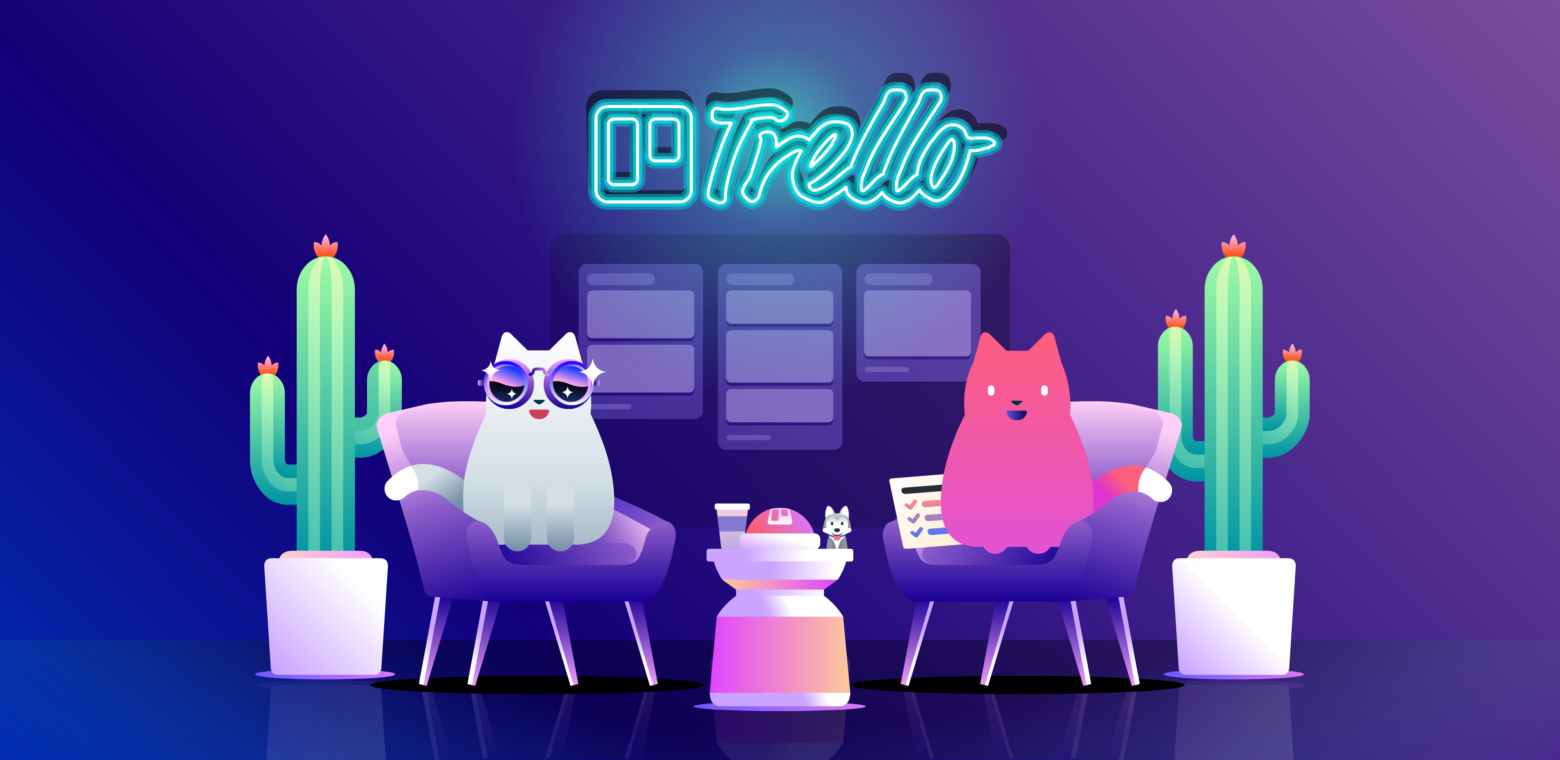You have a 1:1 meeting with your manager in a few minutes and the confusion kicks in. What will you be talking about? What did you two talk about last time? Oh wait, did you remember to make note of that one question you had?
No matter the nature of the 1:1 meeting, having clear expectations beforehand is crucial for not only productivity, but for team morale. Whether you’re a manager or not, there’s a way for 1:1’s to be a win-win for all!
A few years ago, Michael Pryor and I created a Trello board to manage our 1:1 meetings. It’s a process that keeps 1:1’s connected, on track, and most importantly, productive. We found it super useful and can’t go back!
I’m now using Trello boards to manage all of my 1:1s and I know loads of others who do this, too.Hundreds of 1:1s later, I feel like the process is working very effectively. And yes, I actually enjoy attending my meetings thanks to this workflow and proactive planning (I think my teammates feel the same way too ). Use this guide to help your team win some 1:1 victories!
The 1:1 Meeting Board: It’s Simple!
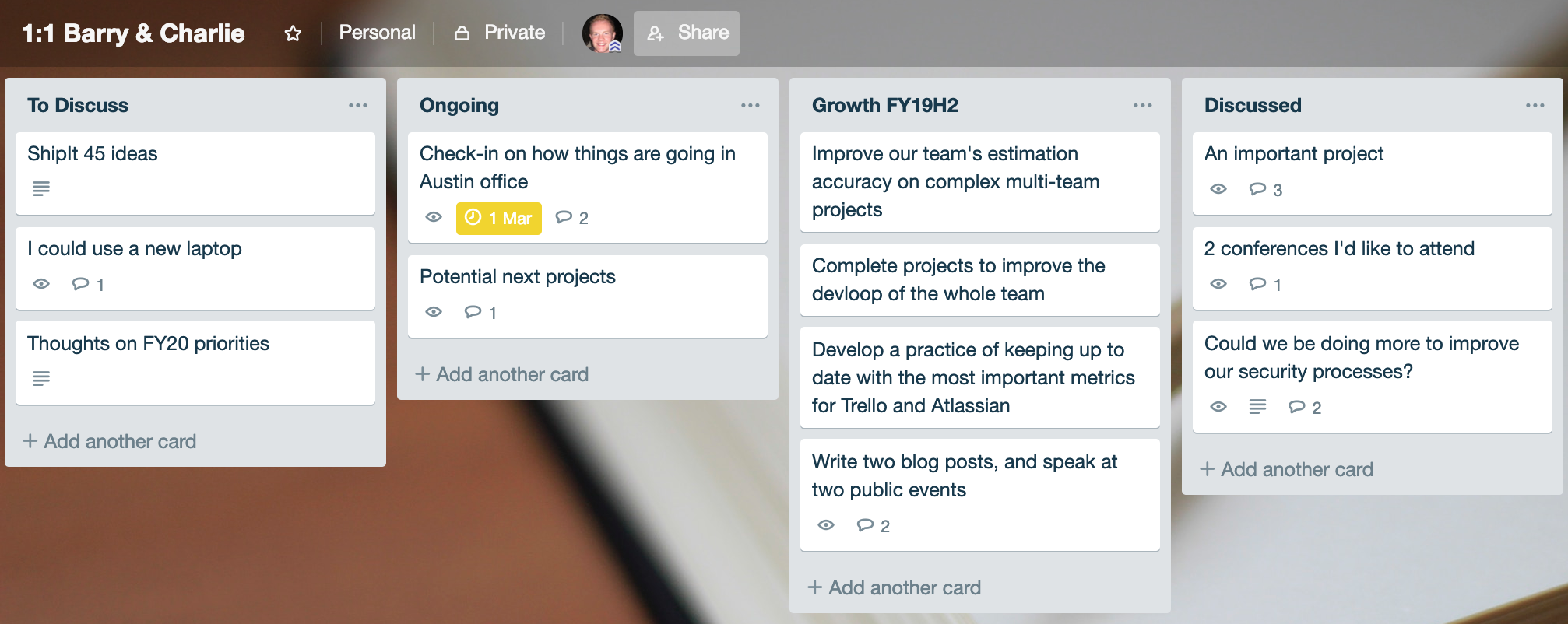
To make things simple, we’ve included a free 1:1 board template that you can copy and edit as we go along. Find the template here.
Let’s walk through how each of the lists is used, that’s where the real magic lies ✨
“To Discuss”: The Place For Topics
Trello as a 1:1 board shines when used in a Getting Things Done fashion. The “To Discuss” list is your shared bucket to drop topics into the list as they come to mind.
This is useful for a few reasons…
- There’s always a place to quickly add topics. When I discover something to follow up on, I send a Slack message if it’s timely, or add it to the Trello board to cover at our 1:1. I also find it helpful to have this parking lot to throw things mid-DM or conversation to be sure I’ll remember to cover it.
- It builds an agenda for the 1:1. It’s the source of truth for what’s going to be discussed. It’s easy to arrange the agenda by dragging cards at the start of the meeting.The shared view of the board makes this fun and interactive during your meeting.
- It gives the other person a heads up about what I want to talk about. This lets them think about the topic ahead of time, ask questions on the card, or decide they actually want to talk to you about it right away.
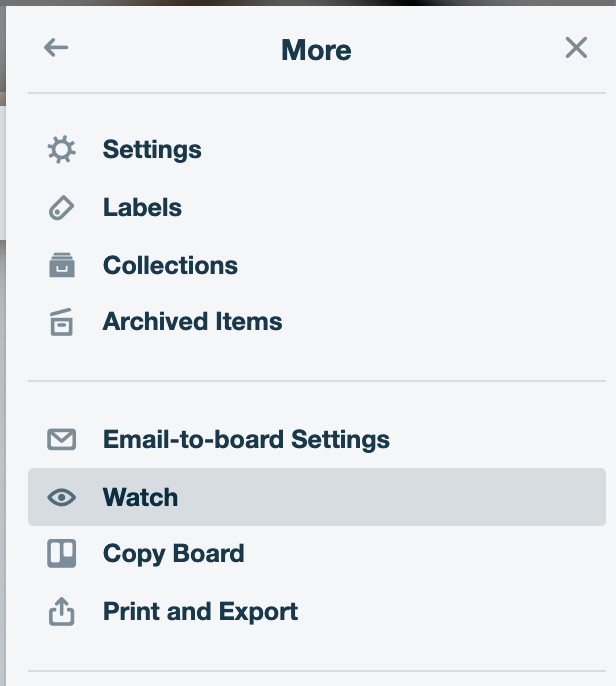
Trello Tip: I find it particularly helpful to watch the board, that way I get a Trello and email notification when a new topic is added.
Both participants watching the board works really well since it effectively offers the other person the choice of whether to respond now or wait to talk about it during the 1:1.
You can do this by clicking “More…”, in the board menu on the right-hand side of the board, then click “Watch”.
“Ongoing”: For Topics That Need a Followup
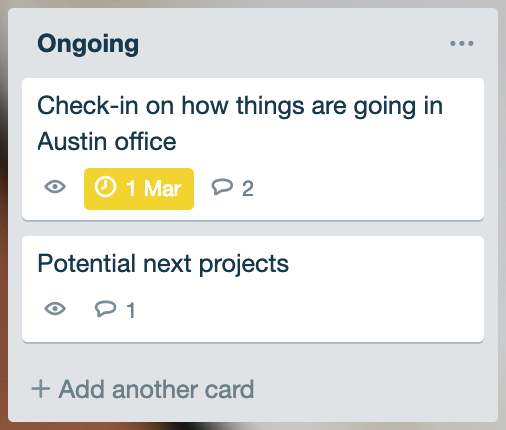
This is where I put discussions we’ve begun that require follow-up. The card sitting in Ongoing is an easy reminder to revisit the topic next time we open the board for our 1:1.
I also use this for topics that we want to check in on periodically, for example, an ongoing project or even the latest update on that TV show you both love.
If I want to be certain we both get a reminder about it, I add a due date. This triggers a custom due date reminder whenever you’d like and highlights it in red if we’re overdue.
“Growth”: Quick Check-Ins On Growth Areas
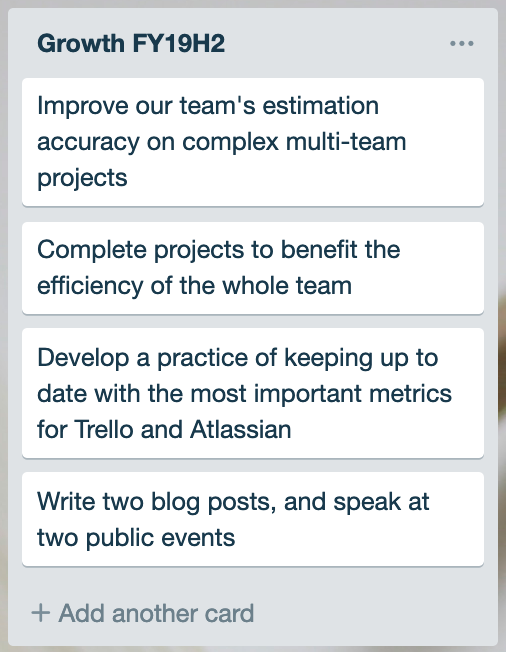
This is something I’ve started experimenting with recently. The idea is for my reports to list 3 to 4 personal growth areas that they’d like to focus on right now onto the board.
Having their growth goals right there in this list is a great reminder of what they are, and it makes it easy for us to quickly check-in on how they’re going every now and then. This is a lighter process than having to flip over to something like a Growth Plan board, which we tend to do as a quarterly discussion.
“Discussed”: Logs Previous Discussions
I don’t use this too often, but it can be helpful to come back and reference cards here and there, especially if we’ve kept notes of decisions and actions in the card. It can also be a great place for to come back and review past discussions or accomplishments when working on a self-assessment!
Ultimately, what’s more satisfying than the “Done” column on any Trello board?

…And That’s It!
It’s easy to experiment and try out, and it doesn’t matter if it’s you or your manager who sets up the board and starts using it. The board itself is so simple there isn’t much of a need for a template. You can copy the board here.
At Trello, using our own product in new ways is always exhilarating. Here’s to hoping this can be useful for your teams as well!
Next: Top Tips And Tricks For Setting Up Your Trello Team Toolkit








